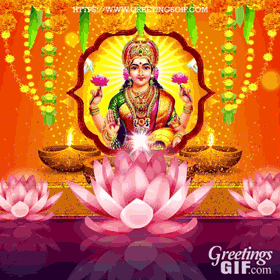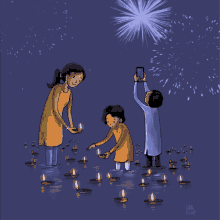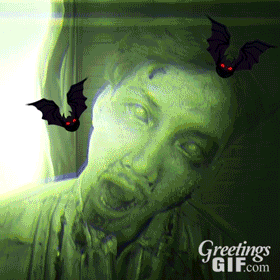Deepavali vs Halloween
by Kenneth Lyen


INTRODUCTION
In my youth, I do not remember seeing many celebrations of Halloween, but I do remember Deepavali (= Diwali) celebrations along Little India. Over the years, Halloween has metastisized all over Singapore, and many of the big supermarket chains display blood-curdling demonic tumours at their entrances. Skeletons are hung up to warn patrons of this disease. Interestingly both Deepavali and Halloween are observed at around the same time, towards the end of October. Both Deepavali and Halloween have religious origins. Which event would you celebrate? Here are some of the differences between them.

Deepavali, also known as the festival of lights, goes all the way back to ancient India, more than 2,500 years ago, to celebrate the harvest. Legend has it that Deepavali honours Ramachandra, the 7th incarnation of the god Vishnu. On this day, he won a battle against the demon king Ravana, and hence it is a triumph of good over evil. The day chosen is based on the Hindu lunar calendar, and is the 15th day of Kartik, the holiest month. This explains the variation of the solar calendar date, ranging from end October to the beginning of November.
Halloween originated in the ancient pagan Celtic festival going back some 2,000 years ago in Ireland, also to celebrate the harvest. After completing harvest work, the Druid priests would light bonfires and wear costumes to ward off ghosts and monsters that could breach the barrier between the world of the dead and the living on this day. When Christianity spread to Ireland, Pope Gregory III chose November 1 to honour the saints, and it was named All Saints' Day. Feasting and celebrations started the night before, the 31st of October, and hence it was called All Hallows' Eve, later renamed Halloween. In Ireland, the ancient Celtic and Halloween festivals merged: bonfires were lit and people wore costumes to protect themselves from marauding evil spirits and witches.
Thus Deepavali retained its goodness and light, while Halloween went to the dark side and became evil and black.
Between 1820 and 1930, it is estimated that some 4.5 million Irish emigrated to America. This was exacerbated by the 1845 potato blight in Ireland. They brought with them the celebration of Halloween, which the Americans embraced wholeheartedly. As America's influence spread worldwide, Halloween was transmitted like a disease to many countries, especially its English-speaking allies, including Singapore.



COMMENTS
I hope that I don’t offend anybody with this comparison of two different cultures. Please do not take it too seriously!
With the increasing influence of Western (American) culture worldwide, it is not surprising that Halloween has become more pervasive. I think that most children enjoy Halloween because they like to be scared in an innocent sort of way, almost like a joke. Which festival would you prefer to celebrate: Deepavali or Halloween?

I would like to wish all my friends both Happy Deepavali as well as Happy Halloween!
Written by Kenneth Lyen
27 October 2019, revised 27 April 2020












